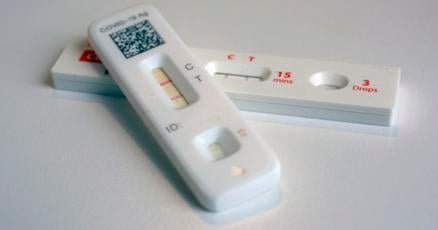
President Joe Biden announced a substantial grant allocation to Tulane University for cancer treatment while in New Orleans on Tuesday.
Tulane researchers secured $22.9 million from the Biden Administration’s Advanced Research Projects Agency for Health to create imaging technologies that will allow surgeons to visualize and ensure the complete removal of cancer cells during surgery.
The President and First Lady Jill Biden made the announcement at the Cancer Moonshot Event hosted at the university, promoting the administration’s initiative to reduce cancer-related deaths.
“Today, we’re announcing a $150 million ARPA-H funding to some of the nation’s cancer research institutions and that includes right here at Tulane University,” President Joe Biden said. “We just met with one of your research teams and we saw 3D views of tumors, it’s incredible − road map that doctors can follow during surgery unlike anything they’ve seen before. Right, surgeons [are] determined to remove cancer cells and protect vital organs, nerves and blood vessels without clear view of them. A lot of it’s really the movement of educated guesswork and not positive. The funding we announced today will help get these tools into the operating room to visualize tumors right away instead of having to wait for days and weeks, and maybe reopening the patient to go back in.”

First Lady Jill Biden said cancer affects everyone and following the death of their son Beau to brain cancer, she and President Biden decided to invest in cancer treatment.
“We wanted to help families like ours so that they won’t have to experience this terrible loss and as President, Joe has brought his son relentless optimism to the Biden Cancer Moonshot − to end cancer as we know it,” she said.
Tulane is among eight teams from around the country to receive funding from the Advanced Research Projects Agency for Health to improve cancer surgery outcomes, with a total of $400 million awarded to develop breakthrough treatments for cancer.
“It’s a promising step to reduce the need for follow-up surgeries and approved treatments − outcomes will be better all across the board and removed quickly because we all know families touched by cancer are in a race against time,” President Joe Biden said. “It’s all apart of our goal of our Cancer Moonshot to end cancer as we know it, even cure some cancers. We’re mobilizing the whole of country efforts to cut America’s cancer deaths in half in 25 years and boost support for patients and their families. In confident in our capacity to do that. I know we can.”
The Bidens observed a presentation of the new technology from Dr. J. Quincy Brown, a biomechanical engineering professor who heads the research team at Tulane University.
“I was born in a small, farming community in North Louisiana − Columbia, Louisiana,” Brown said. “I am so impressed that the mission of ARPA-H is to develop lifesaving technologies that can work in rural community settings and baking that into the process for every American. Not only in this program, do we have to develop new technology? We have to deploy it in two rural hospitals at the end of the project, at the end of five years. So we can’t build a million dollar device. This hits me close to home and it inspires our team to keep the petal to the medal.”
Other institutions that received awards from ARPA-H include Dartmouth College, John Hopkins University, Rice University, the University of California at San Francisco, the University of Illinois Urbana-Champaign, the University of Washington and Cision Vision in Mountain View, California.
Follow Ian Robinson on Twitter @_irobinsonand on Facebook at https://bit.ly/3vln0w1.








